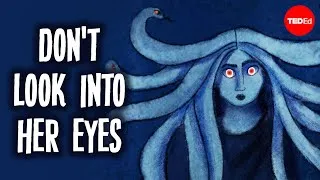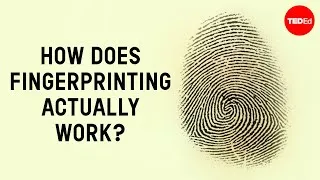请双击下面的英文字幕来播放视频。
翻译人员: xiao gu
校对人员: Yinchun Rui
00:07
Every year, about 1,000 new words are
added to the Oxford English Dictionary.
0
7340
5531
每年有1000个新词加到牛津英文字典。
00:12
Where do they come from,
1
12871
1160
它们从哪里来?
00:14
and how do they make it
into our everyday lives?
2
14031
3596
它们是如何融入我们的日常生活?
00:17
With over 170,000 words currently in use
in the English language,
3
17627
4855
目前在使用的英文单词有超过17万个,
00:22
it might seem we already have plenty.
4
22482
3488
可能虽然看起来已经足够多了。
00:25
Yet, as our world changes,
5
25970
1809
但随着世界在变化,
00:27
new ideas and inventions spring forth,
6
27779
2332
新的点子和新的发明不断涌现,
00:30
and science progresses,
7
30111
1670
科技在进步,
00:31
our existing words leave gaps
in what we want to express
8
31781
4550
现存的词汇已经不足于表达我们的想法,
00:36
and we fill those gaps
in several ingenious,
9
36331
2740
我们开始用一些巧妙的、
00:39
practical,
10
39071
986
实践中的、
00:40
and occasionally peculiar ways.
11
40057
3794
偶尔也有特别的方法来弥补。
00:43
One way is to absorb a word
from another language.
12
43851
3651
一种是从其他语言中吸收。
00:47
English has borrowed so many words
over its history
13
47502
3219
历史上,英语一直从其他语言中吸收词汇,
00:50
that nearly half of its vocabulary
comes directly from other languages.
14
50721
5788
几乎一半的词汇都是外来的。
00:56
Sometimes, this is simply because
the thing the word describes
15
56509
3219
有时,仅仅因为这个词所形容的东西
00:59
was borrowed itself.
16
59728
2510
本身就是外来的。
01:02
Rome and France brought legal
and religious concepts,
17
62241
3410
罗马和法国给中世纪的英格兰
01:05
like altar and jury, to Medieval England,
18
65651
3240
带来了法律和宗教概念,
比如“祭坛” (altar) 和“陪审团” (jury),
01:08
while trade brought crops and cuisine,
19
68891
2691
随着交换农作物和美食,
01:11
like Arabic coffee,
20
71582
1300
比如,阿拉伯的“咖啡” (coffee),
01:12
Italian spaghetti,
21
72882
1531
意大利的“面条” (spaghetti),
01:14
and Indian curry.
22
74413
2520
和印度的“咖喱” (curry)。
01:16
But sometimes, another language
has just the right word
23
76933
3037
有时,外来语言更容易表达
01:19
for a complex idea or emotion,
24
79970
2783
复杂的思想或情感,
01:22
like naïveté
25
82753
1210
比如,“天真” (naïveté)、
01:23
machismo,
26
83963
1140
“男子气概” (machismo)、
01:25
or schadenfreude.
27
85103
2076
或 “幸灾乐祸” (schadenfreude)。
01:27
Scientists also use classical languages
to name new concepts.
28
87179
4254
科学家也用传统语言命名新概念
01:31
Clone, for example, was derived from
the Ancient Greek word for twig
29
91433
5021
例如,克隆 (clone),来自于古希腊词“枝杈”
01:36
to describe creating a new plant
from a piece of the old.
30
96454
4559
描述新枝从老枝中被创造出来。
01:41
And today, the process works both ways,
31
101013
3691
如今,这是双向的,
01:44
with English lending words like software
to languages all over the world.
32
104704
5179
英文向全世界的语言输出了
诸如“软件” (software) 这样的词语。
01:49
Another popular way
to fill a vocabulary gap
33
109883
4142
另一个造词的流行方法是——
01:54
is by combining existing words that each
convey part of the new concept.
34
114025
5309
通过组合存在的词,创造新概念。
01:59
This can be done by combining two
whole words into a compound word,
35
119334
4031
链接2个已知词汇形成一个合成词,
02:03
like airport
36
123365
1180
比如,“机场” (airport),
02:04
or starfish,
37
124545
1681
“海星” (starfish),
02:06
or by clipping and blending parts of words
together, like spork,
38
126226
4628
或者剪切,混合部分词汇,如:“叉勺” (spork),
02:10
brunch,
39
130854
790
“早午餐” (brunch),
02:11
or internet.
40
131644
1859
“互联网” (internet)。
02:13
And unlike borrowings
from other languages,
41
133503
2382
和其他外来词不同,
02:15
these can often be understood
the first time you hear them.
42
135885
4709
这些词汇我们一见就能明白意思。
02:20
And sometimes a new word isn't new at all.
43
140594
3522
有时新词根本就不是新的。
02:24
Obsolete words gain new life by adopting
new meanings.
44
144116
4079
过气的词汇获取了新的定义获得重生。
02:28
Villain originally meant a peasant farmer,
but in a twist of aristocratic snobbery
45
148195
5260
“恶棍” (villain) 最初是指农夫,但是被贵族阶级曲解了,
02:33
came to mean someone not bound
by the knightly code of chivalry
46
153455
4601
意味着没有骑士精神的人,
02:38
and, therefore, a bad person.
47
158056
3270
实际就是指一个坏人。
02:41
A geek went from
being a carnival performer
48
161326
2781
“极客” (geek) 来自于狂欢节上的表演者,
02:44
to any strange person
49
164107
1729
意思发展成有怪癖的人,
02:45
to a specific type of awkward genius.
50
165836
3960
直到意为古怪的天才。
02:49
And other times, words come to mean
their opposite through irony,
51
169796
4213
有时,词汇正好相反,通过讽刺,
02:54
metaphor,
52
174009
1078
隐喻,
02:55
or misuse,
53
175087
2441
或者误用,
02:57
like when sick or wicked are used
to describe something literally amazing.
54
177528
6680
比如说“sick”和“wicked”指的是令人惊叹。
03:04
But if words can be formed
in all these ways,
55
184208
2727
如果词汇通过以上所有方法被创造,
03:06
why do some become mainstream
while others fall out of use
56
186935
3802
为什么一些广为应用,另外一些被遗弃,
03:10
or never catch on in the first place?
57
190737
3751
或者完全没有使用?
03:14
Sometimes, the answer is simple,
58
194488
1750
有时,答案是显而易见的,
03:16
as when scientists or companies
give an official name to a new discovery
59
196238
4129
当科学家或公司给新发明或新技术
03:20
or technology.
60
200367
2081
定义了一个官方的名字。
03:22
And some countries have language academies
to make the decisions.
61
202448
5601
一些国家有专门的语言学术机构作出决定。
03:28
But for the most part, official sources
like dictionaries
62
208049
3129
但大部分情况下,官方来源比如字典,
03:31
only document current usage.
63
211178
2919
仅记录当前的词语含义。
03:34
New words don't originate from above,
but from ordinary people
64
214097
4532
新词汇不是来自官方,而来通过普通人
03:38
spreading words that
hit the right combination
65
218629
3059
广为传播,
03:41
of useful and catchy.
66
221688
3262
广为使用。
03:44
Take the word meme,
67
224950
1470
比如这个词“meme”,
03:46
coined in the 1970s
by sociobiologist Richard Dawkins
68
226420
4558
1970年代被社会学家理查德·道金斯创造出,
03:50
from the Ancient Greek for imitation.
69
230978
3561
来自于古希腊词模仿。
03:54
He used it to describe how ideas
and symbols propagate through a culture
70
234539
4330
用来描述想法和符号通过文化如何被传播,
03:58
like genes through a population.
71
238869
3312
就像是人群的基因。
04:02
With the advent of the Internet,
72
242181
1539
随着互联网的到来,
04:03
the process became directly observable
in how jokes and images
73
243720
4199
笑话和图像以闪电般的速度
04:07
were popularized at lightning speed.
74
247919
3405
广为传播。
04:11
And soon, the word came to refer
to a certain kind of image.
75
251324
4780
很快,这个词被用来指表情包。
04:16
So meme not only describes how words
become part of language,
76
256104
3728
“meme”不仅描述新词汇如何成为语言的一部分,
04:19
the word is a meme itself.
77
259832
3550
“meme”也代表了自身。
04:23
And there's a word for this phenomenon
of words that describe themselves:
78
263382
4409
这类词汇自我描述的现象称为——
04:27
autological.
79
267791
2192
同调。
04:29
Not all new words are created equal.
80
269983
2572
不是所有新词生来平等。
04:32
Some stick around for millennia,
81
272555
2002
一些存在很久,
04:34
some adapt to changing times,
82
274557
2324
一些跟随时代变化,
04:36
and others die off.
83
276881
2606
还有些消亡了。
04:39
Some relay information,
84
279487
1765
一些传递信息,
04:41
some interpret it,
85
281252
1438
一些解释信息,
04:42
but the way these words are created
86
282690
2072
但词汇被创造的方式,
04:44
and the journey they take to become
part of our speech
87
284762
3007
以及它们成为我们日常对话的一部分,
04:47
tells us a lot about our world
and how we communicate within it.
88
287769
4294
传达了我们这个世界以及
我们是如何交流的诸多信息。
New videos
关于本网站
这个网站将向你介绍对学习英语有用的YouTube视频。你将看到来自世界各地的一流教师教授的英语课程。双击每个视频页面上显示的英文字幕,即可从那里播放视频。字幕会随着视频的播放而同步滚动。如果你有任何意见或要求,请使用此联系表与我们联系。







